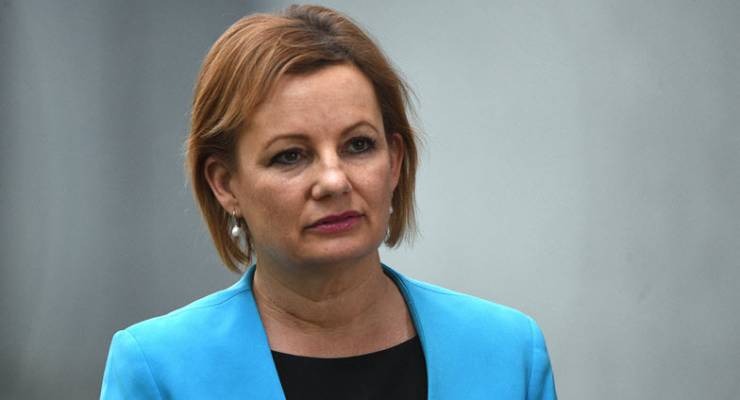
Back in 2016, I went to the Victorian Parliament website to try to find out how much State MPs in my area had been spending on parliamentary allowances. It didn’t go well.
Not only was there no information about how much each of the 128 MPs in Victoria had been claiming, the website didn’t even tell me what the allowance rules were. It had nothing on there about how much MPs were allowed to claim, nor what for. It didn’t even (and still doesn’t) publish how much elected members receive as a base salary.
None of Australia’s state and territories publish useful details of what individual state MPs are claiming. Some publish high level information about travel costs, though it is generally limited in scope and irregular, if it exists at all.
Instead, state politicians are largely free to spend at their own discretion knowing they will probably never have to publicly justify why they took that family trip to the Gold Coast or chartered a flight to a colleague’s wedding.
Such a lack of transparency — coupled with having a large pile of money up for grabs with few questions asked – creates a fertile breeding ground for corruption and greed.
At federal level, it took a string of disgraced politicians to finally prompt the government to make serious reforms to allowances. Sussan Ley’s apartment hunting on the taxpayer dollar tipped an already wobbly system onto its bum.
It was the same in the UK, where claims for moat cleaning, duck houses and phantom mortgages led to an overhaul of the system and six politicians ending up in jail.
And so it was in Victoria too, when my frustration-fuelled digging and a subsequent investigation by The Age led to two state MPs, Telmo Languiller and Don Nardella, being exposed in an embarrassing expenses scandal in 2017.
The pair were found to have cynically bent the rules — albeit within the letter of the law of course — by registering their primary residences over 80km away from Parliament. Doing so enabled them to claim a second home allowance for their respective Melbourne homes despite representing Melbourne electorates.
Languiller and Nardella are fully to blame for their actions. However it is also true to say they were assisted by a rotten system that actively blocks any public scrutiny of MP spending.
Following promises of reform by premier Daniel Andrews last year, a new bill has been put forward in Victoria to formally tighten up the rules.
It will be an improvement for sure, but the level of accountability is still likely to still be a long way off what we have become used to at federal level, where the public can see individual spending lines and details of every trip.
Importantly, the federal government’s Independent Parliamentary Expenses Authority (IPEA), which oversees the new regime, is subject to Freedom of Information laws meaning anybody can ask to see an MP’s receipts and claim forms. Unless state governments allow the same (which would require further legislation changes in Victoria), public scrutiny will still be limited to a sanitised official version of MP spending.
There are worrying signs that Victorian ministers aren’t keen on too much public scrutiny anyway.
One clause in the new bill bans any person from passing comment on anything an MP has listed in their register of interests “unless that comment is fair and published in the public interest without malice”.
Few of us want to live in a society where people are intentionally malicious, but this does seem to be a massive legal overreach that will effectively gag criticism of anything MPs have declared in the register. Taken at face value it could mean, for example, outlawing condemnation of an MP for having shares in a particular company, listing their primary home as being outside of their electorate or accepting free tickets to the AFL Grand Final shortly after calling on other politicians not to do so.
Despite the shortfalls, the Victorian government’s reforms are at least heading in the right direction, even if they are still not where they need to be.
Highly damaging political scandals and sustained public outrage do wonders to convince MPs about the need for reform, it seems.
Other states should not be waiting for another scandal of their own before committing to deep and genuine reform of MP allowances – though history tells us they probably will.








The lack of detail, long lag times and deliberate obfuscation of simple facts – salary, expenses etc – were understandable in the days of pen & ink, physically but this new fangled Intertubes thangy seems to be ideal for having all information on OUR representative/servants fully and comprehensively available, instantly if not sooner.
Oh look, up in the sky, it’s a bird, it’s a plane, it’s Porcus Aviatrix!
The solution is so simple. All expenses to be paid in the first instance by the member to be reimbursed after scrutiny by a review committee. Upgrades should be excluded from reimbursement as they are for personal reasons. Side trips with family and staff should also be excluded. So it goes.
Maybe we should adopt a pay regime for MPs devised in Singapore. That is, work out a reasonable total amount for salary and necessary expenditures, then give them that total (in fortnightly chunks) and not one cent more. Then, lo! Househunting trips to the Gold Coast would cease ! Helicopter rides to weddings would be unheard of ! Melbourne MPs would no longer pretend they live in the bush in order to claim travel allowances (a ploy well-known in NSW, by the way; it was practiced decades ago both by Labor Premier Barry Unsworth and — with no word of a lie, of course — by that professional Christian, Fred Nile). As for the howls of country MPs that their extra transport costs are not being addressed — tough. The National Party teaches us that you go to where your job is. If you don’t want to move there, well, you commute at your own expense. That’s what applied to employees of NSW Agriculture when it was decentralized from Sydney to Orange by a Nat Minister (who didn’t decentralize himself, though). It also applies right now to employees of the PVMA, who are being moved from Canberra to Armidale by a Federal Nat Minister (who also won’t decentralize himself but who wants his next wife to have some civilized company?). No doubt Nat MPs would keep howling anyway, to which the rest of need only say — welcome to your own Australia. We have a market economy here, so if you yourself want something, then you yourself must pay for it. Financial transparency good, bludging ba-a-a-a-a-a-d !